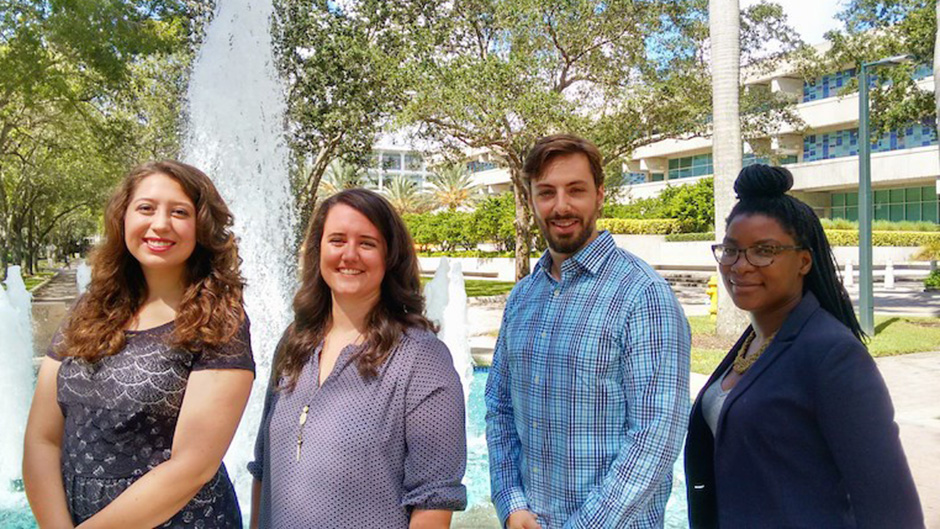Colleges and Universities across the country are graduating more Ph.D.’s than ever before. According a survey released in April from the National Science Foundation, the production of doctorates in the United States climbed 28% to an all-time high of 54,070. While this may be a measure of success for institutions of higher education, many Ph.D. students, specifically those studying humanities and social sciences, are entering a saturated job market.
In response to the growing trend of Ph.D.’s seeking careers outside of traditional faculty positions, the College of Arts & Sciences in partnership with the Graduate School at the University of Miami developed an approach to address concerns and proactively prepare Ph.D. students with experience that will give them the edge when seeking non-traditional careers. UGrow: Graduate Opportunities at Work, is an internship program for doctoral students interested in career opportunities beyond teaching and research.
Koi James, a Ph.D. candidate in International Studies is very aware of job trends for Ph.D. students. As a UGrow Fellow in the College of Arts and Sciences, she currently works with ASPIRE, a program to coordinate undergraduate internship opportunities. “Ph.D. students all over the country are discussing the job market and non-academic career choices. I know that if more programs like UGrow were available, Ph.D. students would be able to broaden their opportunities at graduation and better prepare for an uncertain market,” said James.
Launched in 2015, the program introduces graduate students to alternative academic careers and offers internship opportunities both on and off campus to doctoral students of various disciplines.
“The University of Miami as a whole has a stronger incentive than ever to track and promote successful outcomes for Ph.D. students, across the University and in every discipline. Increasingly, job placement and career outcomes are things that Ph.D. students are asking about before they enroll in a program, especially in humanities where academic positions have been the norm but are harder and harder to come by,” said Tim Watson, associate professor of English and UGrow founder.
Watson, who developed the model for the UGrow program, has gained a great deal of traction and support from colleagues and students alike.
“What is great about the UGrow experience is that it has not only opened my eyes to careers outside of academia, it has also expanded my understanding of the careers that exist in the university outside of tenure-track faculty positions, that are equally stimulating in terms of research and interaction with students,” said Ellen Davies, a UGrow fellow at Special Collections in the Richter Library and Ph.D. candidate in the Department of Modern Languages.
As job trends continue to provide uncertain outlooks for Ph.D. candidates, the UGrow program continues to meet the needs of incoming students. The first cohort of fellows in 2015-2016 consisted of six Ph.D. students with internships at the various units on campus including: UM Libraries, the Graduate School, the Colleges of Arts and Sciences’ Office of Communications and the Office of Advancement, and the Center for Computational Science.
These successes are only the beginning. The 2016-2017 cohort of UGrow fellows has increased to seven Ph.D. students and has expanded internship opportunities to external organizations. Watson notes that he is “actively exploring other partnerships with culture and civic institutions in Miami” to put UGrow on the map.
“The UGrow program will absolutely attract prospective Ph.D. students to programs at UM because it shows that our graduate faculty are not only aware of the realities of the job market for people working in humanities, they are also actively working to help students expand their range of professional skills to prepare them for successful careers inside or outside of academia, said Davies.
As the landscape of graduate education continues to be reshaped throughout the country, Watson has visions of expanding the UGrow program and partnering with others on and off campus to enhance the support and results for Ph.D. students seeking careers outside of the tenure track.

